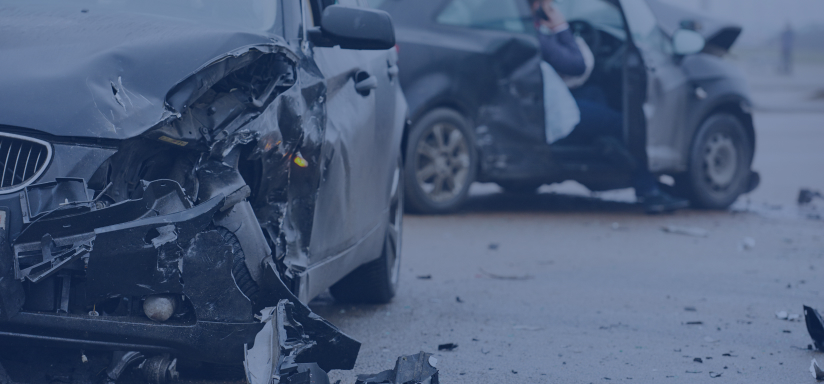Common Causes of Auto Accidents

Car accidents are caused by a wide range of circumstances and factors. While many are the result of one or more drivers’ carelessness behind the wheel, other accidents happen because of external factors such as the weather, road conditions, or the mechanical condition of a car. Many are the result of a combination of these and other factors. If you’ve recently been injured in a car accident and another’s actions or inactions are to blame for the harm you’ve suffered, a San Antonio car accident attorney At Law Offices of Troy A. Brookover can investigate the cause(s) of your crash and help you demand the compensation you deserve.
For more than 30 years, attorney Troy A. Brookover has been dedicated to fighting for injured Texans in San Antonio, Central, and South Texas. He has secured compensation for thousands of clients to date, partially due to the fact that he approaches the task of investigating motor vehicle crashes with great focus and attention to detail.
You deserve financial compensation for the expenses and losses you have suffered because of someone else’s negligence, recklessness, or intentionally harmful conduct. Law Offices of Troy A. Brookover can help you demand it. Contact the firm today for a free case review with our San Antonio car accident lawyer. Troy is Board-Certified in Personal Injury Trial Law by the Texas Board of Legal Specialization, which is a distinction granted to just over 1 percent of personal injury attorneys in Texas.
Causes of Car Accidents in San Antonio
Our firm handles all kinds of car accident cases. Some of the most common causes of car accidents in San Antonio include:
- Distracted driving or inattention – A driver who is visually, manually, and/or cognitively distracted from driving places themselves and everyone around them at risk of injury or death. Common distracted driving behaviors include texting or surfing the web on a cell phone, eating or drinking, reaching around the passenger cabin for an object, interacting with passengers or pets in the vehicle, grooming or applying makeup, changing clothes, adjusting the radio/climate control/navigation systems, and reading a map, book, magazine, or newspaper.
- Drunk driving – In Texas, a driver is typically presumed impaired when they have a blood alcohol content of 0.08 percent (although some drivers have lower limits). However, a driver may still be charged with drunk driving even if they have a lower BAC if other evidence shows that they cannot safely operate a motor vehicle. Alcohol intoxication adversely impacts driving skills, including reaction times, perception, and judgment. Note that because civil and criminal cases are distinct, you can potentially sue a drunk or otherwise impaired driver for harming you regardless of whether they’ve been charged and/or convicted in criminal court.
- Drug impairment – As with alcohol, many illicit and legal prescription drugs can impair a driver’s ability to safely control their vehicle.
- Driver fatigue – Driver fatigue can cause many of the same effects as alcohol or drug intoxication. Drivers often become dangerously fatigued when they spend hours on the road without a break or when they drive during hours they typically sleep.
- Aggressive driving – Aggressive driving involves driving in a manner meant to intimidate other motorists or otherwise disregarding the “rules of the road,” including failing to yield the right of way to other motor vehicles, bicycles, or pedestrians.
- Reckless driving – Reckless driving, which can constitute a criminal offense under Texas law, is broadly defined as operating a motor vehicle in a manner that knowingly disregards the substantial risk of causing an accident and injury. Common reckless driving behaviors include excessive speeding, street racing, or swerving between lanes to weave through heavy traffic.
- Speeding – Speeding is one of the most common causes of car accidents. Driving faster than the speed limit or driving too fast for conditions gives a driver less time to slow down or swerve to avoid a collision.
- Disregarding traffic controls – Disregarding traffic controls, such as running a red light or failing to obey yield signs, can cause an accident because other drivers expect all vehicles to follow the rules of the road.
- Unsafe turns and lane changes – Behaviors that lead to unsafe turns or lane changes include failing to signal, not checking mirrors, not checking blind spots, disregarding blind spot warnings, and cutting in front of other vehicles. It’s also unsafe to make a left turn without yielding the right of way to oncoming traffic and to make an illegal U-turn.
- Teen drivers – Young drivers lack the experience to know how to react to many potentially dangerous driving situations. They may also be more susceptible to distractions, including cell phones or having friends as passengers.
- Tailgating – Tailgating, or following too closely behind another vehicle, greatly increases the risk of a rear-end collision. A tailgating driver has less room to safely slow down and stop if the vehicle in front brakes. Drivers who don’t increase their following distance in adverse conditions, such as heavy rain, fog, or ice, can also cause collisions.
- Inadequate vehicle maintenance – Deferred or improperly performed vehicle maintenance can cause a catastrophic mechanical failure and subsequent accident.
- Auto defects – A defective car design or auto part can cause a mechanical failure that triggers an accident.
- Dangerous roadways – The condition or design of a roadway can cause or contribute to a car accident.
- Adverse weather conditions – Poor weather conditions – such as heavy rain, high winds, thick fog, hail, sleet, and ice – can make traveling on the road more hazardous, as vehicles become harder to control and visibility is reduced.
